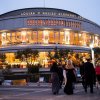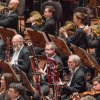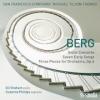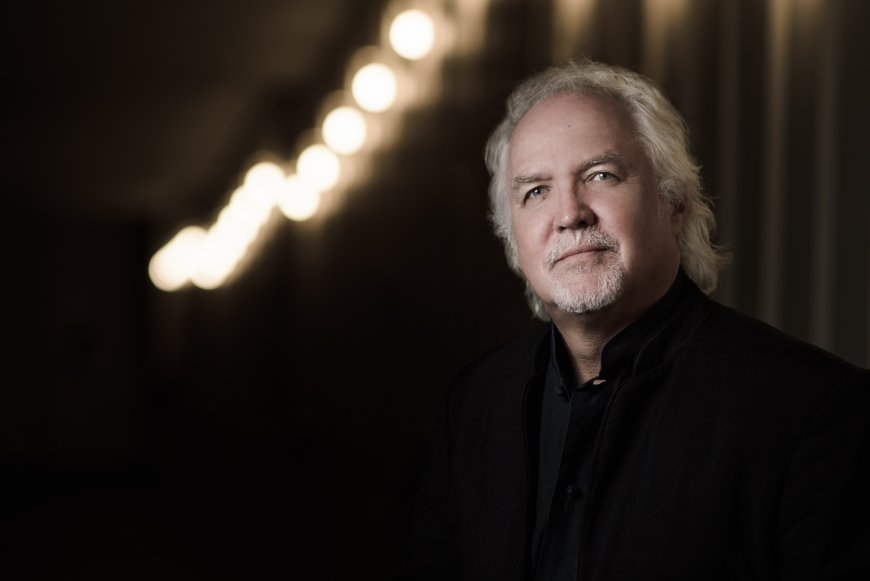
Sir Donald Runnicles has been a conductor for more than four decades. He has spent those years with some of the world’s most important opera companies and orchestras, including serving as music director and principal conductor of the San Francisco Opera from 1992–2009 (he was awarded its highest honor, the San Francisco Opera Medal).
This is his final season as music director of the Deutsche Oper Berlin and his first as the chief conductor of the Dresden Philharmonic. He spends his summers in Wyoming as the music director of the Grand Teton Music Festival, and he’s the principal guest conductor of the Sydney Symphony Orchestra. Critics have written that he is like a “gladiator” when he conducts and that “wrestling a behemoth is one of Runnicles’s superpowers.”
Phew. Runnicles, known for his love for and interpretations of Romantic and post-Romantic repertoire, is bringing his talents back to San Francisco to join the San Francisco Symphony for Gustav Mahler’s First Symphony, paired with Alban Berg’s Seven Early Songs, sung by mezzo-soprano Irene Roberts, Sept. 26–28.
He spoke with San Francisco Classical Voice about Mahler’s personality as a composer, why the Berg pairs well with the First Symphony, and how live music stays fresh because of its ephemerality.
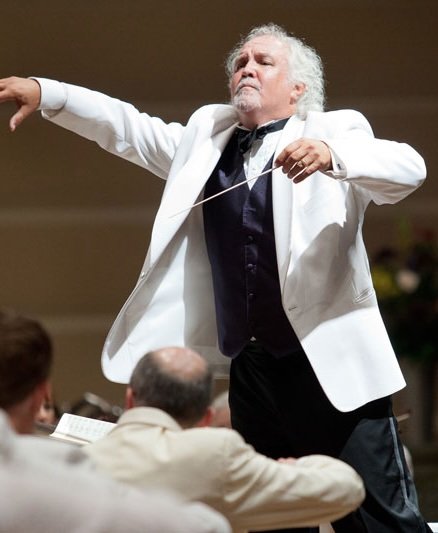
Do you remember the first time you heard this Mahler symphony?
The first time I heard this symphony was when I was at college in Edinburgh, way back when I was filling programs for the weekly Scottish National Orchestra concert. I don’t know what year it was, but I was quite young, and they performed Mahler’s First Symphony. It was one of those formative moments. I couldn't really decide whether it was one hour long or one day long or one lifetime long, but it just made a giant impact on me. I remember that vividly.
Your concert was included in a roundup of Bay Area fall music events, and the writer said you were certain to bring out new textures in the Mahler. When you’re conducting, are you trying to bring out something new?
I think I’m sticking as close as I can to what I deem the composer’s wishes and the composer’s intentions. And indeed, there’s seldom been a composer who has been more specific in what he's looking for in terms of the pacing of a work, or the tempo of a work, or the subtleties. Mahler was just very, very specific.
I’m not consciously trying to bring out any new textures. I’m trying to bring great transparency to a great score like this. And I know, of course, and have a huge respect for San Francisco Symphony, which has a long tradition with Gustav Mahler. It’s not about doing something new. It’s just coming as close as I can to what I believe the composer is seeking.
Why did you choose a piece by Berg to perform with it?
When you have a giant in the room such as that First Symphony, it’s always an interesting challenge to decide what goes next to it without somehow disappearing or looking like just an add-on. There's a very, very strong connection between not just the composers, but the actual people: Gustav Mahler and Alban Berg. Berg was quite a disciple, and in some ways, he had to shake himself loose of the influence of Gustav Mahler and Richard Wagner.
I think the Songs, with this epic landscape of the first symphony, is just a wonderful companion piece. This is a very intimate set of songs. It’s just glorious poetry and just exquisite instrumentation in this youngish Alban Berg, and I just feel that those composers belong together.
Since 2004, you have spent summers in the Tetons in Wyoming. What keeps you going back?
Jackson Hole is an outdoor resort for sports people, for skiing or biking or hiking, but it also has one of the world’s very fine orchestras there. Getting a two-month festival in July and August is very unexpected, I know, for a lot of people who may be visiting for the first time. I keep going there because it reinvigorates me. It restores me every time. Some people might question why musicians who work very hard during the year: “Why do they give up quite a bit of their vacation to play again?” Well, it’s the place. It really is. It’s the sights and sounds. It’s very inspiring.
Of course, you have the backdrop of the Grand Tetons, and there’s the hall itself. It's not an outdoor festival. Some people probably think, “Oh my goodness, they probably play in [a] tent.” No, we have one of the most exquisite concert halls in the world. And, gosh, something like 270 musicians come through the festival. They don't play all eight weeks. They play two weeks, three weeks, four weeks. So yeah, none of its magic has worn off.
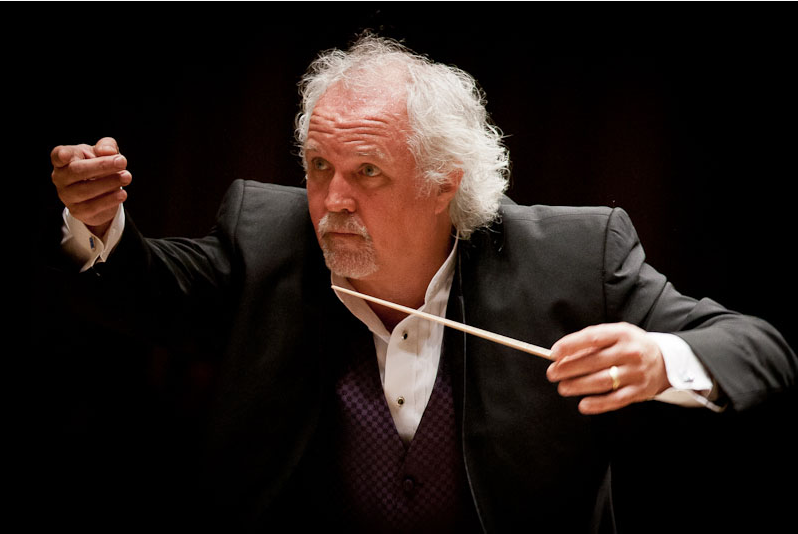
How do you keep loving the music and your work after decades?
Obviously [after] conducting as long as I have, you are going to be revisiting works, whether it's a Brahms symphony or it’s a Mahler symphony, or whether it’s a Mozart overture or a big opera. These are great works. They're timeless. I think you’re always just rediscovering works.
And of course, a very important factor is that I’m getting older. As one gets older, one has different insights into works, moving [on] from the youthful exuberance and perhaps overenthusiastic reactions. Through parenthood and getting older, you come ever closer to these great works. Therein lies the beauty of live music making. It’s there for that audience, for that concert, for that orchestra, but with the last sounds of the last bars, it’s gone.
It's gone, yeah, [and] in that sense, it’s ephemeral. Of course, it remains in your mind, and you may have the recording of it, but each and every time you’re recreating it anew. And I think that process of recreation keeps things very fresh.
You’ve had a lot of career highlights — conducting at the Bayreuth Festival, doing Lulu at the Metropolitan Opera, and being knighted in 2020. Is there one that stands out?
I regard myself as having led, and I continue to lead, a very privileged life, in as far as I continue to conduct big orchestras. The knighthood meant a great deal to me, and, of course, to my family. I wish my parents had still been alive to experience it.
But I think the biggest highlight for me is the fact that after even some 45 years of professional music making, I can still fall in love anew with perhaps a work I’ve hitherto not worked on, and it just remains very fresh. For me, one of the greatest joys was coming to San Francisco for the first time in 1990 and working with the [SF] Opera Orchestra for the first time. Something incredibly special happened there, it led to [performing] Wagner’s Ring cycle, and that led to being appointed music director there in ’92 and that, for me, was one of the most glorious things. That relationship [with] the San Francisco Opera was an absolute highlight, and it resonates still.


